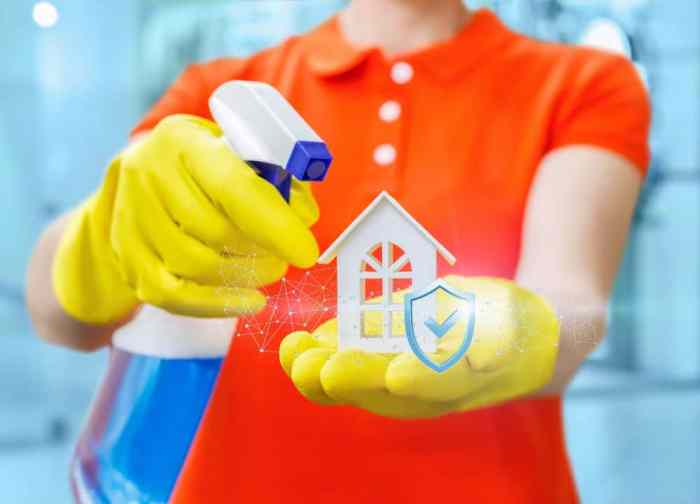How to clean screen door is a crucial skill for any homeowner. Whether you have a simple fixed screen or a fancy retractable model, a clean screen door not only keeps your home looking its best, but also helps prevent the spread of insects and pests. This guide will walk you through the entire process, from gathering your supplies to maintaining your screen door for years to come.
This guide will cover various types of screen doors, different cleaning methods, and tips for preventing future problems. We’ll discuss everything from simple cleaning solutions to more advanced techniques like pressure washing, while highlighting important safety precautions along the way.
Introduction to Screen Door Cleaning: How To Clean Screen Door
Keeping your screen doors clean is more than just aesthetics; it’s crucial for maintaining a healthy home environment. Regular cleaning prevents the buildup of dirt, grime, and potentially harmful insects, extending the life of your door and improving its appearance. This comprehensive guide will walk you through the process of cleaning various types of screen doors, offering tips and tricks to keep them sparkling.Screen doors, a common feature in many homes, come in diverse styles, each with its own cleaning considerations.
Understanding the different types will help you tailor your cleaning approach for optimal results. Whether you have a simple fixed screen door, a convenient sliding model, or a more complex retractable system, this guide will provide the necessary information to tackle any type. Proper maintenance, including regular cleaning, ensures your screen door functions effectively and continues to protect your home.
This is essential for both the health and appearance of your living space.
Types of Screen Doors and Cleaning Considerations
Different screen door types require varying cleaning approaches. Understanding these distinctions allows for more effective and efficient cleaning.
Cleaning your screen door is a breeze! Just grab a mild dish soap solution and a sponge, and gently scrub away any dirt or grime. While you’re at it, consider tackling those pesky fruit flies buzzing around. For the absolute best fruit fly traps, check out this resource on best fruit fly traps. Once you’ve dealt with the flies, your screen door will be sparkling clean!
- Fixed Screen Doors: These doors are permanently attached to the frame. Cleaning is generally straightforward, focusing on removing dirt, debris, and insect nests. Regular wiping with a damp cloth or a mild detergent solution is often sufficient.
- Sliding Screen Doors: These doors slide along a track. Cleaning these requires careful attention to the tracks and the door itself. Removing any accumulated dirt or debris from the tracks is essential to ensure smooth operation. A soft-bristled brush or a damp cloth can be used to clean the door and tracks.
- Retractable Screen Doors: These doors roll up or retract when not in use. Cleaning involves removing any accumulated dust, dirt, or insects from the rollers and the track. Regular maintenance of the mechanisms is crucial for smooth operation. A gentle cleaning with a damp cloth or a vacuum cleaner with a brush attachment can be effective.
Benefits of Keeping Screen Doors Clean
Maintaining clean screen doors offers numerous benefits, extending beyond simply improving the appearance of your home.
- Pest Control: Regular cleaning helps prevent the accumulation of insect nests and debris, deterring insects and pests from entering your home. A clean screen door is a strong barrier against unwanted visitors.
- Health and Hygiene: A clean screen door prevents the buildup of dirt and allergens, creating a healthier indoor environment. This is particularly important for allergy sufferers and those with respiratory conditions.
- Aesthetic Appeal: A clean screen door contributes to the overall aesthetic appeal of your home. A sparkling screen door makes a positive first impression and enhances the curb appeal of your property. Keeping the door clean creates a sense of order and well-maintained living space.
- Extended Lifespan: Regular cleaning helps prevent damage to the door’s frame and components, extending its lifespan. Cleanliness prevents rust, corrosion, and other wear and tear issues, maintaining the structural integrity of the door.
Gathering Necessary Supplies
Arming yourself with the right tools is key to a successful screen door cleaning. Having the correct supplies ensures a thorough and efficient cleaning process, leaving your screen door sparkling clean and ready to keep the bugs out. This section details the essential items needed for a spotless screen door.
Essential Cleaning Supplies
To effectively clean your screen door, you’ll need a variety of tools and cleaning solutions. A well-stocked cleaning arsenal will make the task much easier and ensure a thorough clean.
| Item | Description | Quantity |
|---|---|---|
| Screen Door | The door you’re cleaning. | 1 |
| Soft-bristled Brush | For gently scrubbing the screen. A brush with soft bristles is crucial to avoid scratching the delicate screen mesh. | 1 |
| Microfiber Cloth | Excellent for wiping down surfaces and drying the screen. | 2 |
| Bucket | For holding your cleaning solution. | 1 |
| Spray Bottle | For applying cleaning solution to the screen and frame. | 1 |
| Cleaning Solution (Mild Detergent) | A gentle, all-purpose cleaner for the screen and frame. Choose a product specifically formulated for delicate surfaces to avoid damage. | 1 |
| Warm Water | Essential for diluting cleaning solutions. | As needed |
| Garden Hose (Optional) | For rinsing the screen door if desired. | 1 (if available) |
| Gloves (Optional) | Protect your hands from cleaning solution. | 1 pair (if needed) |
Shopping List
Based on the table above, here’s a concise shopping list for your screen door cleaning supplies:
- Soft-bristled brush
- Microfiber cloths (2)
- Bucket
- Spray bottle
- Mild detergent cleaning solution
- Warm water
- Garden hose (optional)
- Gloves (optional)
Cleaning Solution Effectiveness
Different cleaning solutions have varying degrees of effectiveness for screen doors. A crucial consideration is the delicate nature of the screen material. Avoid harsh chemicals that could damage the screen’s mesh. A mild, all-purpose detergent solution is usually sufficient for most screen doors. For tougher stains, a solution with a touch of baking soda can be effective.
Always test any cleaning solution on an inconspicuous area of the screen door first to ensure no damage occurs.
A mild detergent solution is often the most effective and safest option for screen door cleaning, avoiding potential damage to the screen’s mesh.
Cleaning the Screen
Cleaning the screen mesh of your screen door is crucial for maintaining its functionality and aesthetic appeal. A clean screen allows for better airflow and prevents the accumulation of dirt and debris that can damage the screen’s structure over time. Proper cleaning also extends the life of your screen door.Effective screen cleaning involves careful attention to detail and the right tools.
Different methods can be employed depending on the level of soiling and the materials used in constructing the screen. This section will guide you through various approaches, from simple methods to more advanced techniques.
Methods for Cleaning the Screen Mesh
Cleaning the screen mesh involves gently removing dirt and debris without causing damage to the delicate mesh structure. A variety of methods can be employed, each with its advantages and disadvantages.
- Using a Soft Brush: A soft-bristled brush is ideal for gently dislodging dirt and dust from the screen’s mesh. Use short, gentle strokes to avoid scratching or damaging the screen. This method is especially effective for light soiling and works well on delicate screen materials.
- Employing a Sponge: A damp sponge can be used to remove light dirt and grime from the screen. Gently wipe the screen in a circular motion, ensuring you don’t apply excessive pressure. This method is suitable for screens with minimal soiling. Avoid using a rough sponge that might scratch the screen’s surface.
- Utilizing a Screen Cleaning Solution: For more stubborn dirt and stains, a screen cleaning solution can be applied. Follow the manufacturer’s instructions carefully, as some solutions may contain harsh chemicals that could damage the screen. Test the solution on a small, inconspicuous area first to ensure compatibility.
Cleaning with a Pressure Washer (Optional)
Using a pressure washer can be an effective way to clean a screen door, especially when dealing with significant soiling. However, it’s crucial to use caution and follow safety precautions to prevent damage to the screen and surrounding areas.
- Safety Precautions: Use a low-pressure setting to avoid damaging the screen mesh. Hold the pressure washer at a safe distance to prevent water from spraying on yourself or nearby objects. Wear protective eyewear and clothing to shield yourself from the water spray. Ensure the screen door is stable and won’t be dislodged by the water pressure.
- Step-by-Step Procedure: Start by rinsing the screen with a gentle stream of water to loosen dirt and debris. Gradually increase the pressure as needed, but always maintain a safe distance. Work in sections to ensure thorough cleaning. Rinse thoroughly with clean water to remove any remaining cleaning solution or debris. Allow the screen to dry completely before closing the door.
Comparing Cleaning Methods
The following table summarizes the different cleaning methods, highlighting their strengths and weaknesses:
| Method | Pros | Cons | Suitable for |
|---|---|---|---|
| Soft Brush | Gentle, avoids scratching, good for light soiling | Less effective for stubborn stains | Light soiling, delicate screens |
| Sponge | Simple, inexpensive, good for light soiling | May not remove all dirt, may not be ideal for large areas | Minimal soiling, small screens |
| Screen Cleaning Solution | Effective for stubborn stains, often faster than other methods | May contain harsh chemicals, requires caution | Significant soiling, stubborn stains |
| Pressure Washer | Effective for large areas, quick cleaning | Requires caution, potential damage to screen, safety concerns | Heavy soiling, large screen doors |
Cleaning the Frame and Surrounding Areas

Cleaning the frame and surrounding areas of your screen door is crucial for maintaining its overall appearance and longevity. A clean frame not only looks better but also prevents the buildup of mildew and pests that can damage the door’s structure over time. Proper cleaning also ensures the door functions smoothly and efficiently.Thorough cleaning of the frame and surrounding areas involves removing dirt, grime, and any accumulated debris.
This step extends beyond just the screen itself and encompasses the door’s frame, tracks, and trim. Specific cleaning methods will depend on the material of the frame, so understanding these differences is key.
Frame Material Considerations
Different materials require different cleaning approaches. Knowing the composition of your screen door frame will help you select the right cleaning solution and tools. Wood, aluminum, and vinyl frames each necessitate specific methods to prevent damage and maintain their structural integrity.
Cleaning Procedures for Different Frame Types
- Wood Frames: Wood frames, while aesthetically pleasing, require careful handling to avoid damage. Use a soft-bristled brush or sponge with a mild, soapy solution. Rinse thoroughly with clean water and dry completely to prevent warping. Avoid harsh chemicals or abrasive cleaners that could strip the finish. For heavily soiled areas, a mixture of warm water and a mild dish soap can be effective.
Always test any cleaning solution in an inconspicuous area first to ensure it doesn’t damage the finish.
- Aluminum Frames: Aluminum frames are generally more durable and can withstand harsher cleaning agents. A mixture of mild dish soap and warm water is usually sufficient. For tougher stains, you can use a slightly more concentrated solution. A soft-bristled brush or sponge can effectively remove dirt and grime. Rinse thoroughly with clean water and dry completely to prevent water spots.
Avoid using abrasive cleaners or steel wool, as they can scratch the aluminum surface.
- Vinyl Frames: Vinyl frames are resistant to many elements and can handle a wider range of cleaning solutions. Mild dish soap and warm water are usually sufficient. For stubborn stains, a slightly more concentrated solution can be used, but avoid anything abrasive. A soft-bristled brush or sponge is ideal for cleaning. Rinse thoroughly with clean water and dry completely.
Be mindful of using any cleaning solution that contains bleach or other harsh chemicals, as they might affect the vinyl’s color or texture over time.
Cleaning the Exterior Frame
When cleaning the exterior frame, always prioritize safety. If the frame has a painted or finished surface, avoid using any cleaning agents that could damage the finish. Start by inspecting the frame for any loose or peeling paint. If you discover any damage, address it promptly to prevent further deterioration. For painted frames, a soft-bristled brush and a mild detergent solution are usually sufficient.
Rinse thoroughly with clean water and dry with a soft cloth. If necessary, you can use a specialized paint cleaner for a more thorough clean, but always follow the product instructions carefully.
Cleaning the Tracks and Trim
Thoroughly clean the tracks and trim of the screen door to ensure smooth operation and a clean look. A soft-bristled brush, a damp cloth, and a mild cleaning solution will effectively remove dirt and grime. Pay special attention to removing any debris or accumulated dirt that might be hindering the smooth movement of the door.
Dealing with Specific Stains and Issues
Screen doors, despite their utility, can accumulate various unsightly stains. From stubborn mildew to greasy smudges, tackling these issues requires a tailored approach. Understanding the source of the stain and employing the right cleaning solutions is key to restoring your screen door’s pristine appearance.
Addressing Mildew
Mildew, a common problem in humid climates, often appears as a fuzzy, grayish-white coating on the screen and frame. It thrives in damp environments and requires a more aggressive approach than simple soap and water. A mixture of bleach and water (always test in an inconspicuous area first) can effectively eliminate mildew. For tougher cases, consider using a commercial mildew remover designed for outdoor use.
Remember to always follow the product instructions carefully and wear appropriate protective gear.
Cleaning screen doors is a breeze! Just spray them down with a garden hose and mild dish soap solution. For stubborn grime, consider using a soft-bristled brush. Wondering if that same dish soap is safe for other kitchen items? You might be curious about whether dishwasher-safe means microwave-safe, which is a great question. does dishwasher safe mean microwave safe Once you’ve rinsed and dried, your screen door will look brand new! A little elbow grease and you’ll have a sparkling screen door in no time.
Tackling Grease and Oil Stains
Grease and oil stains are frequently encountered, particularly near areas of food preparation or where vehicles might have parked. These stubborn stains require a solvent-based cleaner. A mixture of dish soap and warm water is often sufficient for light grease, but more persistent stains may need a degreaser or a specialized cleaning product. Apply the cleaner to the stained area, let it sit for a few minutes, and then scrub gently with a soft brush or sponge.
Rinse thoroughly with clean water.
Removing Paint Splatters, How to clean screen door
Paint splatters are an unfortunate but common occurrence, especially if you’re working on a painting project nearby. The best approach for paint splatters depends on the type of paint. For latex paint, a solution of dish soap and warm water may suffice. For oil-based paint, specialized paint removers are more effective. Apply the appropriate solution, let it sit, and gently scrub the affected area.
Always wear protective gear like gloves and eye protection when working with paint removers.
Handling Rust Stains
Rust stains on the metal frame of your screen door are often unsightly and require a targeted approach. A paste made from baking soda and water can help lift rust from the metal surface. Scrub the affected area with the paste, and then rinse thoroughly with clean water. If the rust is severe, consider using a commercial rust remover.
Avoid harsh abrasives, as they can damage the metal.
Table of Common Stains and Cleaning Solutions
| Stain | Cleaning Solution | Instructions |
|---|---|---|
| Mildew | Bleach solution (1:10 bleach to water) | Apply, let sit for 10-15 minutes, scrub, rinse thoroughly. |
| Grease/Oil | Dish soap and warm water, or degreaser | Apply, let sit for a few minutes, scrub gently, rinse. |
| Paint Splatters (Latex) | Dish soap and warm water | Apply, let sit, scrub gently, rinse. |
| Paint Splatters (Oil-Based) | Specialized paint remover | Apply, let sit, scrub gently, rinse. |
| Rust | Baking soda paste, or commercial rust remover | Apply paste, scrub, rinse. |
Maintaining a Clean Screen Door
Keeping your screen door clean isn’t just about aesthetics; it’s about extending its lifespan and maintaining a healthy environment. Regular maintenance prevents dirt and grime from accumulating, which can lead to damage and decreased functionality. This proactive approach ensures your screen door remains a valuable part of your home’s exterior.
Preventative Measures for a Clean Screen Door
Proactive measures are key to avoiding the need for extensive cleaning. Implementing regular maintenance will keep your screen door looking its best and functioning smoothly for years to come. Simple habits can make a significant difference in the long run.
Routine Screen Door Maintenance
Establishing a routine for screen door maintenance is crucial for minimizing future cleaning efforts. Consistency is key, and the frequency of these tasks will depend on your environment and usage patterns.
- Regular Inspections: Periodically check for any signs of damage, such as loose screens, warped frames, or broken components. Promptly address any issues to prevent them from escalating.
- Weekly Dusting and Wiping: A quick dusting and wipe-down of the screen and frame with a soft cloth can remove loose dirt and debris. This simple task will prevent buildup and make deep cleaning less frequent.
- Monthly Cleaning: Monthly cleaning should include a thorough wipe-down of the frame, including the exterior and interior, to remove accumulated dirt and grime. This will help to prevent the build-up of stubborn stains.
- Seasonal Cleaning: Perform a more in-depth cleaning during seasonal transitions (spring and fall). This includes cleaning away leaves, pollen, and other debris that accumulate during these times. This also helps to remove any lingering winter salt or dust from the frame.
Avoiding Common Problems
Understanding the factors that contribute to a dirty screen door allows for preventative measures to be implemented. Knowing the common culprits can help in mitigating the problem before it escalates.
Cleaning screen doors can be a breeze, really! Just grab a bucket of soapy water and a soft sponge, and you’re good to go. For stubborn grime, consider some of the tried and true tricks longtime gardeners swear by, like using a mixture of baking soda and water. These tricks can be surprisingly effective, especially for those tough-to-remove stains.
Rinse thoroughly and your screen door will be sparkling clean in no time!
- Weather Conditions: Harsh weather, such as heavy rain, strong winds, or excessive sun exposure, can accelerate the accumulation of dirt and debris on the screen door. Protecting the door from these elements will significantly reduce the frequency of cleaning.
- Pest Activity: Insect activity, especially during the warmer months, can lead to an accumulation of insects and insect residue on the screen. Implementing preventative measures, such as using insect repellents, can help to minimize these issues.
- Pet Activity: Pets can track in dirt and debris that can quickly accumulate on the screen door. Regular cleaning and preventative measures like wiping down the screen after pets use the door will help maintain cleanliness.
- Incorrect Cleaning Methods: Using abrasive cleaners or scrubbing too hard can damage the screen and frame. Employing the right cleaning tools and techniques can prevent this issue.
Protecting Your Screen Door from Harsh Weather
Protecting your screen door from the elements is vital to its longevity and cleanliness. Taking precautions can significantly reduce the amount of cleaning needed.
- Storing the Screen Door (Seasonal): During periods of inclement weather, storing the screen door in a covered area can prevent damage from rain, snow, or excessive sunlight. This will help maintain the integrity of the screen and frame.
- Using Weatherstripping: Weatherstripping can help seal the frame and prevent moisture and debris from entering, reducing the accumulation of dirt.
- Addressing Pests: Addressing pest activity, particularly during high-activity seasons, can prevent pests from accumulating on the screen. Use appropriate pest control measures to keep the screen clean.
Preventative Measures List
Implementing these preventative measures will help to maintain a clean screen door and minimize the need for extensive cleaning.
- Regular cleaning schedule: Establish a routine that fits your lifestyle. This schedule should consider the weather patterns and your usage of the screen door.
- Use appropriate cleaning solutions: Choose cleaning solutions that are safe for the screen and frame material. Avoid harsh chemicals that could damage the materials.
- Inspect for damage regularly: Regular inspections can identify and fix minor issues before they become major problems.
- Seal gaps and cracks: Seal any gaps or cracks in the frame to prevent the accumulation of dirt and debris.
Safety Precautions
Keeping yourself safe while cleaning your screen door is paramount. Neglecting safety precautions can lead to injuries from slips, falls, or exposure to harsh chemicals. This section details essential safety tips to ensure a clean and injury-free cleaning experience.
Protective Gear
Proper attire is crucial for a safe cleaning session. Appropriate protective gear safeguards you from potential hazards. Wear gloves to protect your hands from harsh chemicals and abrasives. Safety glasses or goggles are essential to shield your eyes from flying debris or chemical splashes. Consider a long-sleeved shirt and pants to prevent skin contact with cleaning agents.
If using power tools, always wear sturdy work boots to prevent slips and falls.
Cleaning Solution Hazards
Cleaning solutions, while effective for removing dirt and grime, can pose hazards if not handled carefully. Always follow the manufacturer’s instructions for mixing and diluting solutions. Some cleaning solutions can cause skin irritation, respiratory issues, or eye damage. Always work in a well-ventilated area when using strong chemicals. Never mix cleaning solutions unless explicitly directed by the manufacturer’s instructions.
Handling Cleaning Supplies
Cleaning supplies should be handled with care to prevent accidents. Heavy cleaning products should be stored and transported carefully to avoid spills or drops. Always use appropriate containers to hold cleaning solutions and store them away from children and pets. Use caution when opening or pouring cleaning agents to prevent spills.
Safe Storage of Cleaning Supplies
Proper storage of cleaning supplies is crucial to prevent accidents. Store cleaning solutions in their original containers or in clearly labeled containers. Keep cleaning supplies out of reach of children and pets. Store them in a cool, dry place, away from heat sources and direct sunlight. If using flammable cleaning agents, store them in designated areas away from ignition sources.
Safety Measures for Cleaning Screen Doors
| Safety Measure | Description | Importance |
|---|---|---|
| Wear appropriate protective gear (gloves, safety glasses) | Protects hands and eyes from chemical splashes, abrasives, and flying debris. | Reduces risk of chemical burns, eye injuries, and cuts. |
| Work in a well-ventilated area | Allows for proper ventilation to prevent inhalation of harmful fumes. | Reduces the risk of respiratory problems. |
| Use caution when handling cleaning solutions | Avoid spills and splashes. Use appropriate containers for transport. | Reduces risk of chemical exposure and contamination. |
| Store cleaning supplies properly | Keep them out of reach of children and pets. | Prevents accidental exposure and injuries. |
| Inspect equipment before use | Ensure tools are in good working order to prevent malfunctions. | Reduces the risk of injuries and damage. |
Final Summary

Maintaining a clean screen door is a rewarding experience, providing a healthier and more aesthetically pleasing home environment. By following these comprehensive steps, you’ll not only enjoy a clean and attractive screen door, but also gain valuable skills in tackling home maintenance tasks. Remember, prevention is key! Implementing the preventative measures discussed will save you time and effort in the long run.






